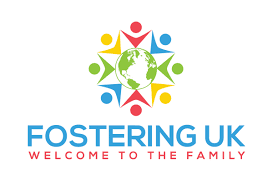Understanding the Impact of Trauma on Foster Children
1. What is Trauma?
Trauma is something awful or frightening that occurs to a person and causes them to feel extremely sad, terrified, or pained. It can occur when something scary or stressful occurs, such as a vehicle accident, a large fire, or when someone is cruel to them. Trauma can cause people to feel anxious, furious, or as if they want to hide.
2. Who are Foster Children?
2. Who are Foster Children?
Foster children are children who are unable to live with their birth families for a variety of reasons. They are put with another family who loves and cares for them as if they were their own children. Before going to live with their new families, these foster children have occasionally experienced trauma.
3. How does Trauma Affect Foster Children?
3. How does Trauma Affect Foster Children?
When foster children experience trauma, they may become afraid, confused, or furious. They may struggle to trust others or understand their own emotions. Even though they are safe, trauma can make them feel as if they are constantly in danger. This might make children in their new foster home feel sad and uncomfortable.
4. The Power of Feelings
4. The Power of Feelings
Feelings are powerful! They can help us grasp how we're feeling on the inside. As a result of their trauma, foster children may experience a wide range of emotional emotions. It is vital to remember that all feelings are valid and should be expressed.
5. Why Some Foster Children May Behave Differently
5. Why Some Foster Children May Behave Differently
Foster children may exhibit unusual behaviour as a result of the trauma they have endured. They may have trouble sleeping or eating, feel highly irritated or disturbed, or struggle to pay attention. It's not because they want to be tough; it's simply how they express themselves. We can help them if we are patient and understanding.
6. How We Can Help Foster Children Heal
6. How We Can Help Foster Children Heal
There are many things we can do to help foster children heal and feel better. Here are a few critical ways we may assist them:
7. Building Trust and Safety
7. Building Trust and Safety
We can show foster children that we are trustworthy and that they are safe with us. This can be accomplished by being pleasant to them, listening to them, and keeping them safe.
8. Expressing Emotions
8. Expressing Emotions
We can show foster children that we are trustworthy and that they are safe with us. This can be accomplished by being pleasant to them, listening to them, and keeping them safe.
9. The Importance of Listening
9. The Importance of Listening
To assist foster children, we must first listen. We may listen to their stories, worries, and dreams. People appreciate the value of their words when we listen.
10. Creating a Stable Environment
10. Creating a Stable Environment
Foster children require a stable and predictable setting in which they know what to expect. We can establish and stick to routines to make kids feel safe and comfortable. A steady schedule helps kids feel more at ease and less stressed.
11. Encouraging Healthy Relationships
11. Encouraging Healthy Relationships
Having good relationships with others is really important for foster children. We can help them make friends, spend time with supportive adults, and join activities where they can meet other kids. When they have people who care about them, it makes them feel loved and valued.
12. Helping Foster Children Develop Coping Skills
12. Helping Foster Children Develop Coping Skills
Coping skills are like superpowers that allow us to deal with difficult situations. We can teach foster children alternative coping mechanisms, such as taking deep breaths, counting to ten, or doing something they enjoy. When kids are upset or stressed, these skills might help children feel better.
13. Celebrating Progress
13. Celebrating Progress
When foster children mature, it is critical to appreciate and celebrate their achievements. We can appreciate their efforts, express our admiration for them, and celebrate their achievements. This boosts their self-esteem and motivates them to keep growing and healing.
14. How to Support Foster Children
14. How to Support Foster Children
Fostering foster children necessitates being available to them at all times. We are capable of being patient, kind, and understanding. We can offer a sympathetic ear, a warm hug, and encouraging words. We can help them overcome their past traumas by showing them love and support.
15. The Bright Future Ahead
15. The Bright Future Ahead
Foster children's futures do not have to be dark, even if they have encountered adversity. With the proper support and care, they can recover, grow, and achieve their goals. They have enormous potential and deserve every opportunity to thrive and be happy.
Summary
Summary
Foster children have experienced horrific incidents that may have left them afraid and unhappy. However, we can help them heal and feel better. We can assist children on their journey by creating a safe and loving environment, listening to their feelings, and providing coping methods. Foster children are strong and resilient, and with our care and support, they may have a bright and happy future.




Comments
Post a Comment